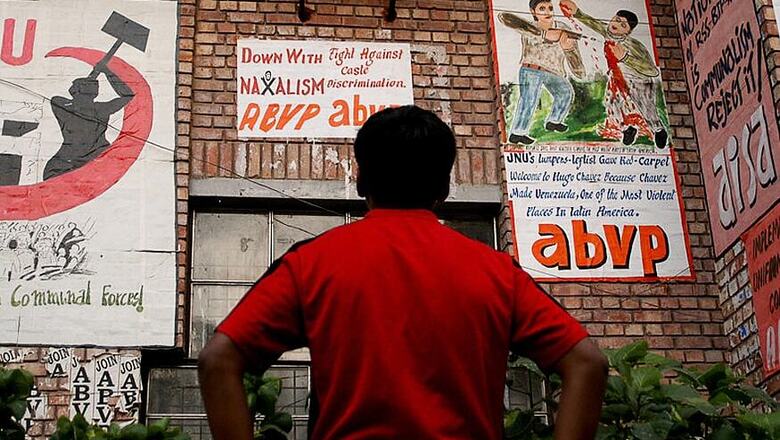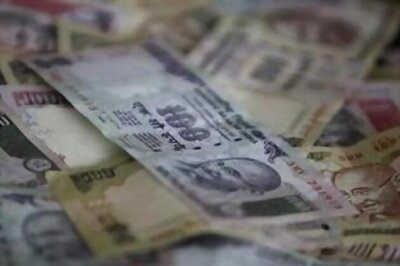
views
New Delhi: “When we were students, we would force the government to roll back DTC fare hike”; reminisces a senior Delhi University professor, sitting in the shade of a large peepul tree, in the middle of the college campus.
He will retire next year. As a student and as a teacher for more than three decades, he’s been witness to many a student agitation in the heart of the national capital. From Indira Gandhi’s imposition of Emergency to Mandal agitation triggered by Rajiv Goswami’s self-immolation bid.
In all these years, DU and its politics has been qualitatively different from another campus straggling a patch of Aravalli’s south of the city. Politically, culturally and in so many ways, JNU and its politics have been poles apart from DU.
Faultlines in DU have been more about “real” politics – a training ground for students who would get their hands dirty in fighting elections. Madan Bisht, from a remote village in Almora, would return home and represent Dwarahat in the Uttarkhand assembly. Vijay Goel would contest and win Lok Sabha elections from Chandni Chowk.
In JNU, battles were more ideological. It was too engrossed in Marxist dialectics and its various strands epitomizing the Left’s dilemma in dealing with caste – the perennial reality of India’s polity.
A NEW POLITICAL CONSCIENCE?
This Delhi University election to elect a new student representative body later this month, however, seems markedly different.
It all started on February 21 this year, when clashes broke out in Delhi University’s Ramjas College. By the next day, violence had spread to other parts of North Campus. For students fresh out of school, the sight of stones flying in from all directions, fisticuffs breaking out and paramilitary forces marching on their beloved campus was a traumatic experience.
The College cancelled a seminar 'Culture of protest' after ABVP activists protested against the participation of Jawaharlal Nehru University (JNU) research scholar Umar Khalid and former JNUSU vice-president Shehla Rashid in the programme.
Khalid was booked on charges of sedition alongside fellow research scholar Anirban Bhattacharya and then JNUSU president Kanhaiya Kumar in 2016, and BJP’s student wing ABVP decide to oppose an invite extended to the JNU students.
Saurya Majumdar, a third year student, recalls the confrontation between the Left Wing supported student outfits and ABVP. “Rocks were being hurled at us from all sides. We were trapped and couldn’t escape for hours. We want to reclaim our campus. DU is famous for open debates at chai shops and street corners. That day, the very idea of DU was challenged.”
The campus violence has also become a rallying point for the All India Students’ Association (AISA) to mobilise Left-liberal forces on the campus. Its DU unit chief Kanwalpreet Kaur has been leading the charge. AISA has been trying to pitch itself as an alternative to the bipolar power structure of the RSS-backed ABVP and the Congress-affiliated NSUI (National Students’ Union of India).
“Violence free DU is our main plank,” said Kaur, “ABVP has been trying to strike fear into the hearts of the students but we will not allow it to happen. They raise issues like nationalism because they are nowhere to be seen on the ground. They never come to the streets to help ordinary students or raise their voice. Violence free DU will be the central issue of this election. We are emerging as an alternative to the money and muscle power axis of the ABVP and NSUI.”
Bharat Kumar, ABVP Delhi State Secretary, however, disagrees. “We will go to the students and tell them about the work that ABVP has done in the last few years. AISA talks about violence free DU but who brought the outsiders into campus? It was them. There is no place for anti-national views and slogans on our campus.”
The common student un-affiliated to any party politics is concerned with the developments.
“I was there at the protest last year. A stone came and hit me. I have still preserved it as a memento. This election is not a normal election,” says another student who does not want to be named.
This, perhaps, is the new normal in DU student politics.


















Comments
0 comment